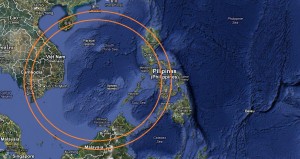
Hong Lei, spokesperson of China’s Ministry of Foreign Affairs, said the name South China Sea continues to be the internationally recognized name for the contested waters, which touch the shores of China, the Philippines, Malaysia, Vietnam, Brunei and Taiwan.
The six countries have been contending ownership over territories within the waters, with China claiming almost all of the resource rich islands and rock formations within the West Philippine Sea and the others laying partial claims.
No change
“The action of the Philippine side will not exert any change to the fact that China enjoys indisputable sovereignty over the islands in the South China Sea including Nansha (Spratlys) Islands and Huangyan (Panatag/Scarborough Shoal) Island, and their adjacent waters,” Hong said in a statement sent by the Chinese Embassy in Manila.
President Aquino signed on Sept. 5 an order officially renaming Philippine-claimed parts of the South China Sea to West Philippine Sea, more than a year after Malacañang implemented the name change in all public agencies.
The renaming covers waters within the 370-km exclusive economic zone of the Philippines, an area recognized under international law to be under the country’s sovereign rights to explore and utilize natural resources.
This includes the Kalayaan Island Group within the Spratlys, a group of islands off Palawan, and the Panatag Shoal off Zambales, which sparked a standoff between China and the Philippines earlier this year.
New PH maps
Aquino’s order also instructs the state mapping agency to produce and circulate new Philippine maps containing the new name. The Department of Foreign Affairs is also expected to send the official map to the United Nations.
But while the Philippines says the name change affirms its sovereignty over its claimed islands, the Chinese say it is invalid.
In an editorial published on Friday, China Daily, a leading state paper, called the name change “a reckless decision,” saying it inevitably caused tensions to flare between Manila and Beijing.
“Any reasonable person can recognize that Manila is being irrational if it thinks it can gain sovereignty over a part of the South China Sea simply by giving it a different name,” read the editorial, which quoted the Inquirer’s report about the name change.
‘Null and void’
“China, with its indisputable sovereignty over Huangyan (Panatag) Island, will not tolerate the Philippines’ attempts to encroach upon its maritime territory. Manila’s decision is therefore null and void and will do nothing to change the fact that the South China Sea and Huangyan Island have been part of
Chinese territory since ancient times,” said the paper in the editorial titled “Manila’s Name Game.”
The editorial also sent a foreboding message to the Philippines, saying the move only wasted efforts made to ease tensions between the two countries.
“Manila’s latest decision will do nothing but squander the efforts both sides have made to quell the recent disputes. China will never shy away from protecting its territory. The Philippines, therefore, will have to reap what it has sown,” said the paper.